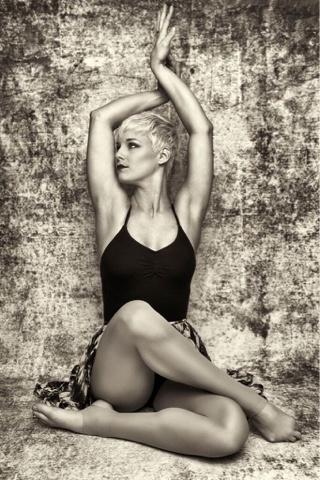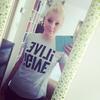What is a Spoonie? Well here's a little definition from the urban dictionary which sort of explains it, in a short and sweet fashion.
"Spoonies are people that live with chronic illness; theoretically measuring personal daily abilities much as one would measure the proper amount of spoons needed for an event or occasion... sometimes having an abundance, other times coming up short."
So I have lived with Cystic Fibrosis all my life, in a way a curse but it makes me a pro at measuring my spoons and spreading them evenly to do all the things I want to do - I am a proud Spoonie! I will be blogging about this over the next few posts, writing all my thoughts in one chunk felt a little too full on!
I often get asked by others with medical conditions/chronic illness how I train and get better at pole with all my medical constraints - how do I spread my spoons? Some of these people are others who have Cystic Fibrosis like me and may or may not be post-transplant, others are from the pole community who have other illnesses such as Fibromyalgia and other nasty spoon juggling conditions. Now, I'm not saying I know everything about training with a chronic condition, I certainly don't and a lot of it is trial and error. What I do know is that I have great respect for those of you who are training with a chronic illness - I am constantly learning from you all.
Cystic Fibrosis is a disease that affects the lungs which is why I've had 2 double lung transplants, you probably already know that if you're reading this, but what you might not know is it actually effects a lot of my other main organs causing dysfunction in some and failure in others. My digestive system doesn't work like it should and I suffer a lot of pain on a weekly basic through blockages; my pancreas is practically non-functional, meaning I don't send out enzymes for breaking down fat from food or absorbing vital calories for energy; I also don't deliver insulin to absorb, store and utilise the energy from sugar making me a Type 1 Diabetic and thus dependant on insulin injections and my liver is also effected. Aside from the direct implications of the Cystic Fibrosis, I also have post-transplant related complications - in order to make sure that my body does not reject my transplanted lungs, I am immune-suppressed which means, unfortunately, I catch everything and this makes me poorly on a regular basis; I'm post menopause from radiation therapy and so have regular hormone problems which lead to fatigue and last, but certainly not least, I suffer with juvenile chronic arthritis which although is not as bad as it has been previously, does cause pain regularly.
So, these are the things that make me a Spoonie, how I manage this - well that's the hard one! Notably, my training really varies week-to-week, depending on how much I teach, how well I feel and how much time I have. Whilst I aim to I train 3 times a week, every week, it would not be truthful or realistic for me to advertise that. Some weeks I'm lucky to even survive all the lessons I teach, let alone my personal training. But I've listed below, some of techniques I use to aid in my training.
1.) I have a coach, I know I'm an instructor and can, theoretically, train myself but when you have little energy having someone there to support and guide you is an incredible tool. Amy Williams is my coach, I think it's really important to pick the right person. She is there to break down the new moves for me and so I do not have to spend time figuring them out (time which I always have to utilise as effectively as possible). She also motivates me in a positive way and keeps me in check when I'm feeling low. Basically, Amy stops me spiralling into self-pity, something that inevitably just tires me more. I picked her firstly, because I liked her style of performance but in all honesty I lucked out, she has a wealth of knowledge which I feed from and most importantly the right attitude to help me in the ways I need with her caring, understanding yet no bullshit attitude - I don't have time for bullshit in my life. Don't be afraid to change coaches/instructors if it's not the right fit!
2.) I warm up for a long time, some days I may spend 1-2 hours gently warming the body. This ensures that I reserve energy for the actual task but also gets me moving and ready for it at the same time.
3.) Don't overdo it. Sometimes, I may only train for 30 minutes - I really listen to my body and if it's not feeling it I know I'm only going to suffer and not achieve a lot. And often 30 mins, with a clear goal, is enough to pack a punch.
4.) I'm constantly making new goals - researching what I want to train, this way I know that the time I spend actually training won't be wasted on figuring out what I want to achieve. I have a list of moves and some are for intense training days and others are for no energy days when I know I need to get it done and rest.
5.) I watch and watch and watch videos. I know that I'm a visual learner and most of the time I can learn something just by watching it and emulating it at a later date. I don't think you can ever get to much inspiration. So just sit down and watch when you're not feeing up to it yourself, sometimes I find that this then gives me the mental energy to train because mental energy is just as important as physical energy. I always save the links to things (NB. on Facebook you can save the link to a video in the top right corner where the little down arrow is. On Instagram you can copy and paste links which you can then save somewhere for later reference - I save mine in the notes app on my phone.)
6.) I vary my training - just because I'm training for pole doesn't always mean I train pole. Some days I know my lungs aren't up to dancing around, so I stretch and work my flexibility and contortion instead. Days when my tummy feels rubbish and sore I might go to the gym and train biceps and triceps in a way that doesn't involve to much core activation, as I know my core just isn't up for it. When my joints hurt it’s mostly floor work with little to no flexibility.Sometimes, you need to recognize that you aren't up for training at all. This is a tough one to call, but maybe the most important part of this blog. You may feel as though making the decision not to train is admitting defeat, but in actual fact it's just recognising that this is another part of your training. I call this the “TLC” part - where you reset and prepare for the next physical part. Signs and symptoms that you need to rest are: A.) Complete Body Ache, if your body is starting to ache all over it may be sending out warning signs that it has had enough. When your body becomes stressed it releases hormones such as Cortisol, which can lead to lower immunity, bone density, increased weight gain, blood pressure, cholesterol and heart disease to name a few. These will greatly impact your future ability to train. B.)Temperatures are a no no! If you’re starting to burn up, stay at home! C.) Pain From Your Condition, I'm all up for pushing the barriers of pain but there are some pains we have to admit is too much and acknowledge that you will do yourself harm should you try to train like through it. This really is a judgment call. (NB. I will be going more in depth into pain management in another blog, looking at how to train with it and when not to.)
7.) Now we've established that rest is part of training, the questions becomes ‘what shall we do in that rest time that can benefit us?’ The answer, TLC. I look at biomechanics and work with that: body parts that might be sore - roll them out to release muscles, use trigger point therapy and just think about maintenance for the body. A massage from my sports masseur, Heather, is always a great way to help ease those muscles (she’s a genius!). Often, something as simple as a hot bath, or a splash around in a pool is just the ticket. Alternatively, try going for a little walk to clear your mind – effectively, we are looking at things that are good for both the body and the soul. Sometimes training whilst being a Spoonie means being a problem solver - if this body part isn't functioning today, what can I do with the rest of me that is? Remember to love yourself and the body you work hard and that works hard for you, you may feel rather angry at it sometimes because it doesn't function normally, but it also does amazing things for you every day. How can you expect it to carry on performing if you don't take the time to reward, nourish and love it?
8.) Finally, fuel your body properly. Too often people focus more on weight loss than on health. Weight loss can, of course, be part of making a healthier you, but it should not be the main goal. I will be posting another blog, later, explaining what and how to nourish your body with the right foods.
I hope that the first installment of this series of blogs has given you some food for thought. I should just like to end on one last message: just because you have physical limits doesn't mean you can't push past them and achieve even your greatest dreams. You got this far, why can't you go further
 Photo by phaze photography
Photo by phaze photography 
